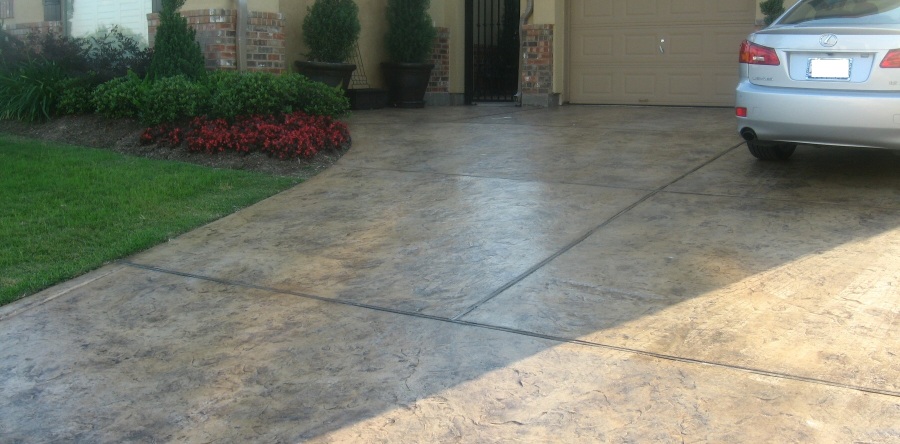Protect Your Home With Regular Concrete Sealing
Whether you have stamped concrete, decorative concrete, or a simple concrete floor in your garage, basement, or patio, sealing your floor is the best and surest way to prevent degradation and keep it looking tip-top for years to come.
When you seal your concrete floor you provide a barrier. It protects against threats such as standing water, caustic chemicals, and normal wear-and-tear. But you are providing protection against extreme weather-such as snow, ice, scorching heat, and humidity which can permeate the surface of your concrete and cause damage to your floor.
Sealing your concrete isn’t really a labor-intensive, nor costly, job. By sealing your concrete every 2-5 years, as recommended by experts, you should keep your floor in good shape, preventing cracks, pitting, and additional damage.
What is Concrete Sealant?
A concrete sealant is typically made of epoxy, polyurethane, or some sort of penetrating resin. Sealants are available at different price points, the most economical being the acrylic.
Acrylic sealants require more frequent applications, but do provide quality protection. They allow your concrete to “breathe” and won’t trap water vapor internally, where it can damage your floor.
Additionally, acrylic sealants provide a bit more traction, lessening the opportunity for slip-and-fall injuries to you, your friends or family members.
Polyurethane and resin sealers will be much more occlusive. They may end up causing cracks or moisture damage if you live in an area with heavy precipitation. The penetrating-resin concrete sealer is much more expensive.
For the best results should be applied professionally. The protection provided by penetrating sealers goes, as the term implies, deep within the concrete, creating a chemical barrier that protects against moisture.
Maintenance and Reapplication
Many experts agree that concrete flooring should be sealed every 2-5 years, in order to preserve and protect your floor. Of course, the amount of time between sealant application can depend on many different circumstances. Only you know how much your floor can endure between applications.
Consider the location and use of your concrete. Is it in a high-traffic area, a walkway, patio or finished-basement floor? Do you store heavy equipment, and caustic chemicals in your garage, shed, or work room, exposing your concrete to additional threats of damage? If so, you may need to seal more frequently.
The climate in which you live can also shorten the life of your concrete. Exposure to intense weather of any kind will impact the life of your concrete floor. This includes desert heat, cloying humidity, or bitter cold.
As concrete is a porous material, freezing and thawing can promote cracks and degradation. Making sure your concrete is sealed is essential to the lifespan of your floor, driveway, and the like.
Increte of Houston has been serving the Greater Houston community for over 30 years. We are experienced in decorative concrete and can answer all of your concrete sealing questions. Call us at (281) 499-3990 or send us an online message Here.


Recent Comments